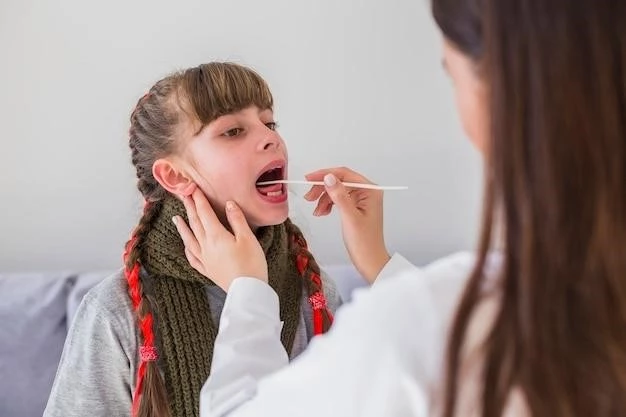Understanding Dinno-Shearer-Weisskopf Syndrome
Welcome to this comprehensive guide on Dinno-Shearer-Weisskopf syndrome. This article will provide valuable insights into this rare genetic disorder, including its origins, symptoms, diagnosis, treatment options, prognosis, healthcare management, and the latest scientific research advancements. Stay tuned!
Overview of Dinno-Shearer-Weisskopf Syndrome
Dinno-Shearer-Weisskopf syndrome, a rare genetic disorder, is characterized by a combination of symptoms affecting multiple systems in the body. This syndrome is named after the researchers who first described it. Understanding the origins and manifestations of this syndrome is crucial for proper diagnosis and management. Individuals with this condition may experience a range of symptoms that can vary in severity and impact on daily life. As an individual or caregiver of someone with Dinno-Shearer-Weisskopf syndrome, it is important to be informed about the nature of the disorder, its possible complications, and the available support resources. Seek guidance from healthcare professionals specializing in genetic disorders to ensure comprehensive care and support tailored to your specific needs.
Genetic Inheritance of Dinno-Shearer-Weisskopf Syndrome
Understanding the genetic inheritance pattern of Dinno-Shearer-Weisskopf syndrome is crucial for individuals and families affected by this rare disorder. This syndrome is known to have a genetic basis, with specific gene mutations contributing to its development. The inheritance pattern of Dinno-Shearer-Weisskopf syndrome can vary, with some cases showing an autosomal dominant pattern while others may follow an autosomal recessive inheritance. Genetic counseling plays a key role in providing information about the likelihood of passing on the syndrome to future generations and discussing options for family planning. By gaining insights into the genetic mechanisms underlying Dinno-Shearer-Weisskopf syndrome, individuals and families can make informed decisions about their healthcare and future well-being. Consult a genetic counselor or healthcare provider with expertise in genetic disorders to receive personalized guidance and support.
Symptoms and Diagnosis

Recognizing the symptoms and obtaining a timely diagnosis of Dinno-Shearer-Weisskopf syndrome are essential for effective management of this rare genetic disorder. Individuals with Dinno-Shearer-Weisskopf syndrome may present with a diverse array of symptoms that can affect various systems in the body, including developmental delays, intellectual disability, distinctive facial features, skeletal abnormalities, and cardiac issues. Diagnosing Dinno-Shearer-Weisskopf syndrome typically involves a thorough clinical evaluation, genetic testing to identify specific gene mutations associated with the syndrome, and imaging studies to assess any structural abnormalities. It is important to consult healthcare professionals specializing in genetic disorders for an accurate diagnosis and comprehensive treatment plan tailored to individual needs. Early detection and intervention can help improve outcomes and quality of life for individuals with Dinno-Shearer-Weisskopf syndrome. Stay proactive in seeking medical advice and support for timely diagnosis and appropriate management.
Treatment Options for Dinno-Shearer-Weisskopf Syndrome
Managing Dinno-Shearer-Weisskopf syndrome involves a multidisciplinary approach aimed at addressing the diverse symptoms and complications associated with this rare genetic disorder. Treatment plans are tailored to the individual needs of patients and may include interventions to address developmental delays, intellectual disabilities, cardiac issues, skeletal abnormalities, and other health challenges. Therapies such as early intervention programs, physical and occupational therapy, speech therapy, educational support, and medical interventions may be recommended to manage specific symptoms and enhance overall well-being. Regular monitoring by healthcare professionals specializing in genetic disorders is essential to track progress, adjust treatment strategies as needed, and address any emerging health concerns. Collaborate closely with a healthcare team experienced in managing rare genetic conditions to access comprehensive care and support for individuals with Dinno-Shearer-Weisskopf syndrome. Stay engaged in treatment planning and follow-up care to optimize health outcomes and quality of life.
Prognosis and Healthcare Management
Understanding the prognosis and implementing effective healthcare management strategies are vital for individuals living with Dinno-Shearer-Weisskopf syndrome. The prognosis for this rare genetic disorder can vary based on the severity of symptoms, presence of complications, and individual response to treatment. Healthcare management focuses on holistic care to address physical, developmental, and emotional needs of patients. Regular medical evaluations, symptom monitoring, and supportive interventions are key components of healthcare management for Dinno-Shearer-Weisskopf syndrome. Collaborate with a specialized healthcare team that includes geneticists, pediatricians, therapists, and other healthcare providers to create a comprehensive care plan tailored to the specific requirements of the individual. Stay proactive in managing health and well-being by adhering to treatment recommendations, attending regular follow-up appointments, and accessing available support services. With proactive healthcare management and a supportive network, individuals with Dinno-Shearer-Weisskopf syndrome can achieve optimal outcomes and lead fulfilling lives.
Scientific Research and Advancements
Scientific research plays a crucial role in advancing our understanding of Dinno-Shearer-Weisskopf syndrome and developing innovative approaches to diagnosis, treatment, and support for affected individuals. Ongoing research efforts aim to uncover the underlying genetic mechanisms, identify potential therapeutic targets, and enhance healthcare management strategies for this rare genetic disorder. Participating in clinical trials and research studies can provide valuable insights into the syndrome’s progression and facilitate the development of novel interventions. Stay informed about the latest scientific advancements and research initiatives related to Dinno-Shearer-Weisskopf syndrome by engaging with reputable healthcare institutions, patient advocacy groups, and scientific communities. By supporting scientific research efforts and staying abreast of emerging discoveries, individuals and families affected by Dinno-Shearer-Weisskopf syndrome can contribute to the advancement of medical knowledge and potential future breakthroughs in care. Collaborate with healthcare providers and researchers to explore opportunities for involvement in research activities and stay connected with the scientific community for ongoing updates and progress in the field.
Conclusion
In conclusion, Dinno-Shearer-Weisskopf syndrome is a complex genetic disorder that requires a multidisciplinary approach for effective diagnosis, treatment, and management. By understanding the genetic inheritance, recognizing symptoms early, seeking timely diagnosis, exploring appropriate treatment options, and engaging in proactive healthcare management, individuals and families can navigate the challenges posed by this rare condition. Through ongoing scientific research and advancements, there is hope for improved outcomes and enhanced quality of life for those affected by Dinno-Shearer-Weisskopf syndrome. Stay empowered with knowledge, connect with healthcare professionals specializing in genetic disorders, participate in research endeavors, and access support networks to navigate the journey ahead. With a proactive approach to healthcare and a supportive network of care, individuals with Dinno-Shearer-Weisskopf syndrome can achieve optimal well-being and lead fulfilling lives. Remember, you are not alone on this path – reach out for assistance, stay informed, and advocate for comprehensive care tailored to your specific needs.
